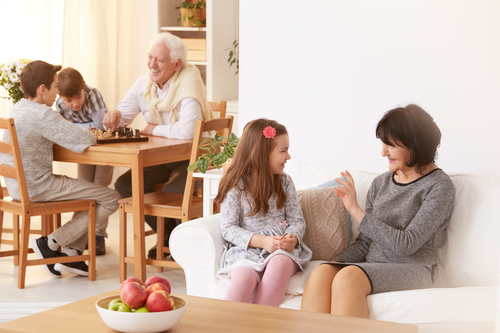
There is no greater joy of being a grandparent than spending time with your grandkids. If you spend a lot of time with your grandkids, there may be a variety of things you want to bring up to their parents. You should be careful though.

5 Things Grandparents Should Bring Up to Parents
It’s usually best to let the parents do the parenting. It can be tempting to share your decades of experience raising kids . But, each parent/child relationship is different.
Though, there are 5 things you should bring up to parents.
1. Respect
You need to set boundaries with your grandchild to make sure they respect you. If the child repeatedly ignores those boundaries, you should bring it up to the parents.
Let them do the punishing, but don’t be afraid to say, “That’s not how you talk to me.”
2. Developmental Concerns
You may notice something about your grandchild that the parents haven’t. If there are any speech delays, motor function problems, or lack of social skills, you should bring it up.
There’s nothing wrong with sharing your concern. Just make sure you do it respectfully.
3. Safety
It’s important to bring up any safety concerns to the parents. See how far they want to go with things like crossing the street or wearing a helmet.
See if you can set your own safety rules at your house if you don’t agree with what the parents want. Then you can say, “Everyone wears a helmet at Granny’s,” and that sort of thing.
4. Food
Everyone wants their kids to grow up happy and healthy, but you can’t control what they eat outside of your home. Feel free to serve all the veggies you want at your home, just make sure that the parents are okay with it.
If you really are concerned about your grandchild’s health, you should bring it up to the parents. Again, just be respectful.
5. The Important Stuff
You need to talk to the parents immediately if you notice any physical or sexual abuse, neglect, substance abuse by a parent, or any harm that could come to your grandchild.
Safety is the priority. If you have to, call your local police department or Child Protective Services.
Read more here.





